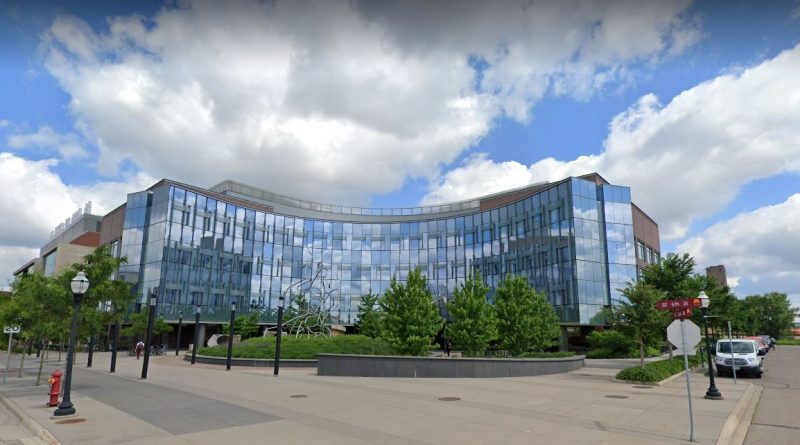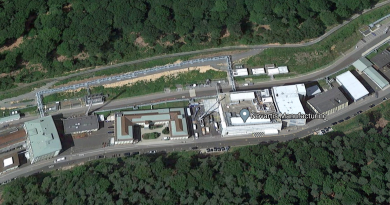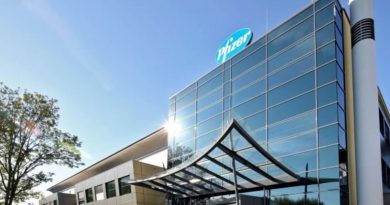Cancer and Cardiovascular Research Building, University of Minnesota
The Cancer and Cardiovascular Research Building was added to the Biomedical Discovery District in 2013.
It is part of the University of Minnesota in Minneapolis and is a modern $200 million, 280,000ft², building which houses over a thousand scientists and researchers in its state-of-the-art laboratories.
The Cancer and Cardiovascular Research Building consists of three departments: the Lillehei Heart Institute, the Department of Integrative Biology and Physiology, and the Masonic Cancer Center.
Lillehei Heart Institute and the Department of Integrative Biology and Physiology
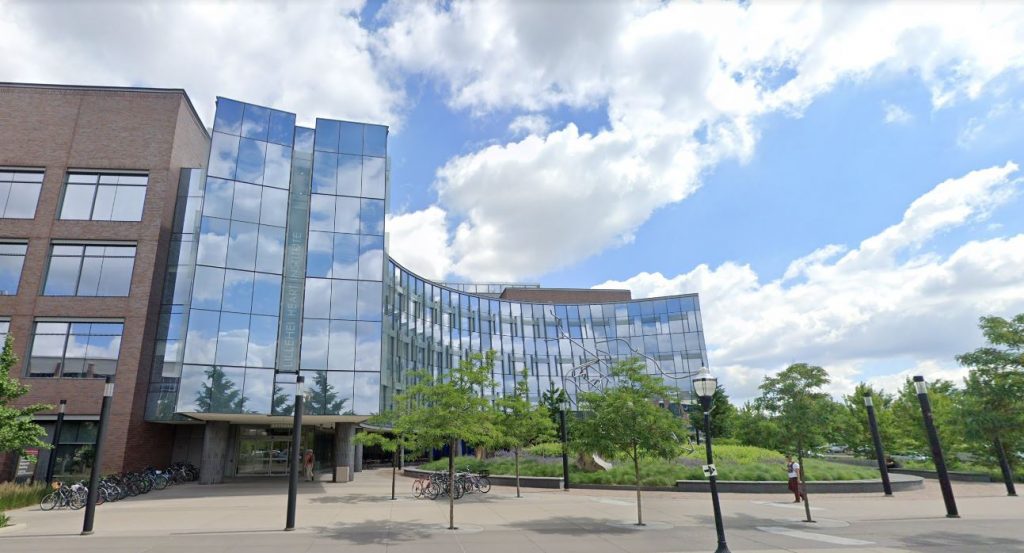
The scientists and researchers working at the Lillehei Heart Institute and the Department of Integrative Biology and Physiology focus on cardiac regeneration, cardiac development, muscular dystrophy, congenital heart medicine, and genomics.
Cardiovascular Disease Research programs
The Lillehei Heart Institute research programs focus on cardiovascular genomics, heart development, heart regeneration, stem cell therapies, personalized medicine, heart failure, vascular biology, and device design to treat cardiovascular diseases. New research teams and ultramodern research facilities have helped increase grant funding significantly and resulted in five large programmatic grants. The extra funding facilitates collaborations and synergies to promote new therapies.
The Department of Integrative Biology and Physiology (IBP) current research is pioneering in the areas of cardiovascular/muscle, metabolism/obesity and hypertension.
The Masonic Cancer Center
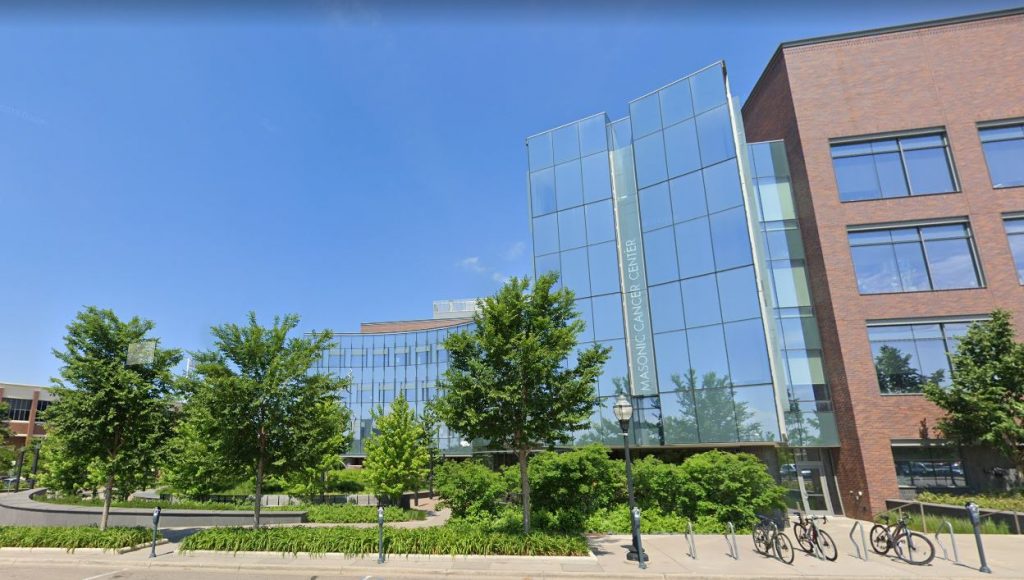
The Masonic Cancer Center is the main designated facility for cancer research. It houses chemical biologists focusing on studying chemical carcinogens as a cause of cancer, and new innovative therapeutic strategies to fight cancer. It lists seven major research programs as the following: carcinogenesis and chemoprevention; cellular mechanisms; genetic mechanisms; immunology; screening, prevention, etiology, and cancer survivorship (SPECS); and transplant biology and therapy.
Cancer Prevention Research Programs
The Carcinogenesis and Chemoprevention Program research themes are tobacco and cancer; chemical and molecular mechanisms of carcinogenesis; and chemoprevention of cancer. The 27 members of the program aim to evaluate the causes, chemical and molecular mechanisms, and prevention of carcinogenesis and to develop practical methods for cancer prevention.
The Cellular Mechanisms program research themes are, Signal Transduction within and between tumor cells; Epigenetic Regulation of the Cancer Transcriptome; and Tumor Stroma Remodeling. The key aim of the programs’ members is to develop new strategies for prevention, early detection, diagnostics and prognosis, and treatment of cancer.
The Genetic Mechanisms (GM) research program has 34 members and is focusing on three specified themes: Cancer gene discovery and analysis; Genome stability; and cancer gene therapy and genome modification.
The Immunology Program is focused on four research themes, namely: Mechanisms of lymphocyte tolerance; Lymphocyte activation and signal transduction; Mechanisms of lymphocyte development and Tumor immunology and immunotherapy. The 21 Immunology program members work on developing immunotherapies that overcome the major obstacles associated with generating a durable immune response against tumor-associated antigens.
The Screening, Prevention, Etiology and Cancer Survivorship (SPECS) Program has 60 members. The SPECS research themes focus on the following: Pediatric and adult cancer epidemiology; Cancer risk reduction and Cancer diagnosis, outcomes, and survivorship. The aim of the program is to understand biological and behavioural factors in the causation or origination of cancer. SPECS ultimate scientific goal would be to reduce behaviours that may lead to cancer or enhance behaviours that decrease the risk of getting cancer.
The Transplant Biology and Therapy Research Program themes are: Hematopoietic reconstitution; immunological reconstitution; Immunological reconstitution; Relapse prevention and treatment. The 41 members strive to minimise or eliminate factors limiting hematopoietic stem cell transplantation. These include regimen-related toxicities, graft-versus-host disease (GVHD), and delayed reconstitution of immunity.
Advertisement
Latest Projects
- Eli Lilly to Invest $6 Billion in New API Manufacturing Facility in Alabama, USA
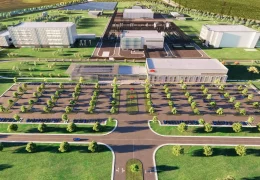 The new Huntsville, Alabama site will produce small molecule and peptide medicines, including oral GLP-1 orforglipron Eli Lilly and Company
The new Huntsville, Alabama site will produce small molecule and peptide medicines, including oral GLP-1 orforglipron Eli Lilly and Company - Eli Lilly’s Next-gen $6.5B API and GLP-1 Orforglipron Facility, Houston, Texas, USA
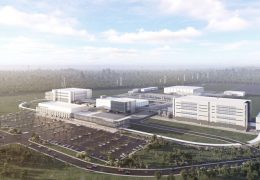 Eli Lilly and Company has announced plans to build a $6.5 billion next-generation active pharmaceutical ingredient (API) manufacturing facility at
Eli Lilly and Company has announced plans to build a $6.5 billion next-generation active pharmaceutical ingredient (API) manufacturing facility at - AstraZeneca Unveils $300 Million Cell Therapy Manufacturing Facility in Rockville, USA
 Global biopharmaceutical leader AstraZeneca has officially opened a new $300 million state-of-the-art cell therapy manufacturing facility in Rockville, Maryland, marking
Global biopharmaceutical leader AstraZeneca has officially opened a new $300 million state-of-the-art cell therapy manufacturing facility in Rockville, Maryland, marking - Roche to Invest $50B in US Pharma Expansion Set To Flip Trade Deficit
 In a transformative move for the U.S. healthcare manufacturing sector, Roche unveiled plans to invest $50 billion in American pharmaceutical
In a transformative move for the U.S. healthcare manufacturing sector, Roche unveiled plans to invest $50 billion in American pharmaceutical - MSD Acquires WuXi Vaccines Facility in Dundalk for €500m
 In a significant acquisition move, pharmaceutical giant MSD has agreed to acquire the WuXi Vaccines manufacturing facility in Dundalk, Ireland.
In a significant acquisition move, pharmaceutical giant MSD has agreed to acquire the WuXi Vaccines manufacturing facility in Dundalk, Ireland. - Infrareal to Take Over Takeda’s Gene and Cell Therapy Site in Orth, Austria
 Infrareal Holding plans to take over Takeda’s pharma and biotech site specialising in gene and cell therapies in Orth, Lower
Infrareal Holding plans to take over Takeda’s pharma and biotech site specialising in gene and cell therapies in Orth, Lower

